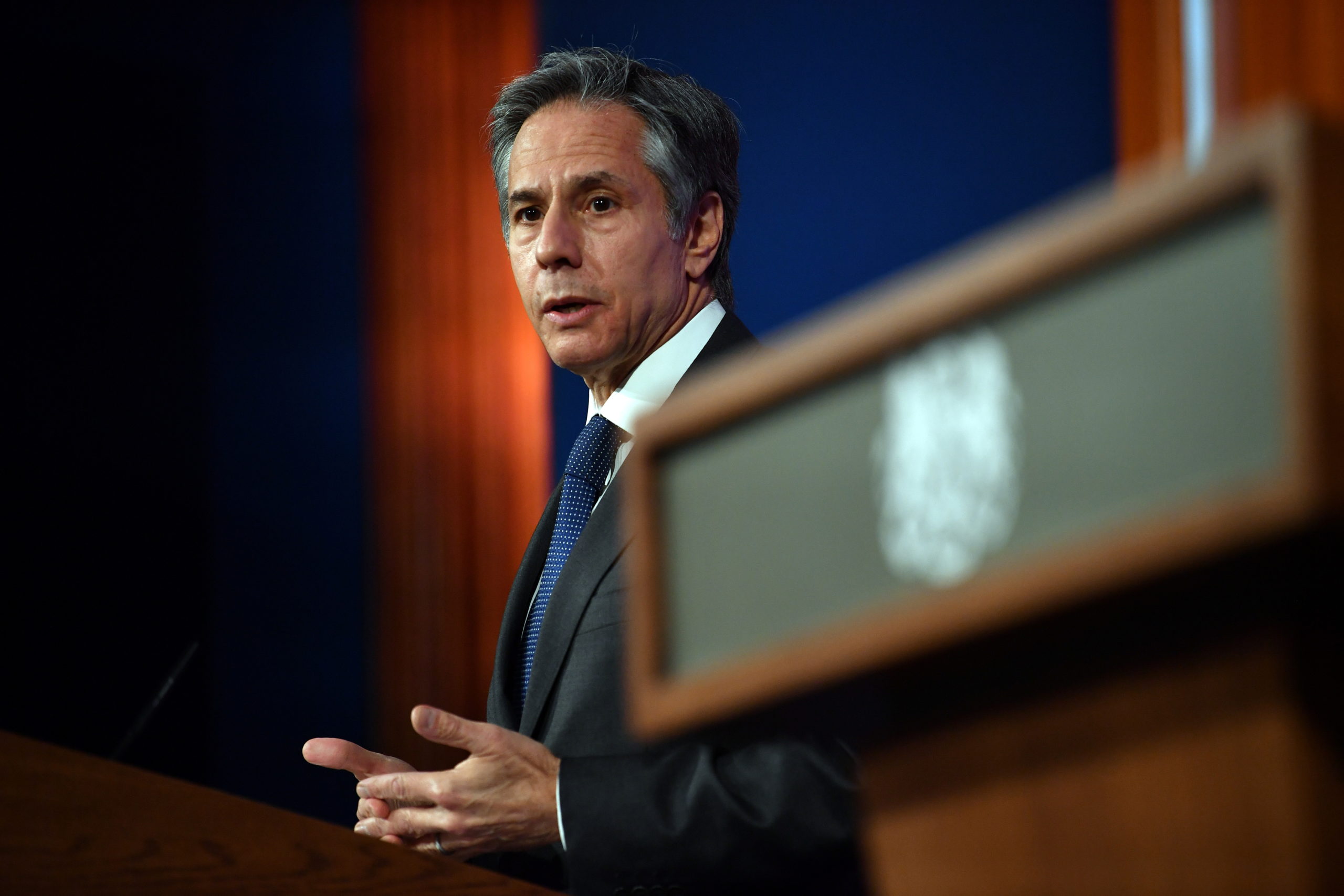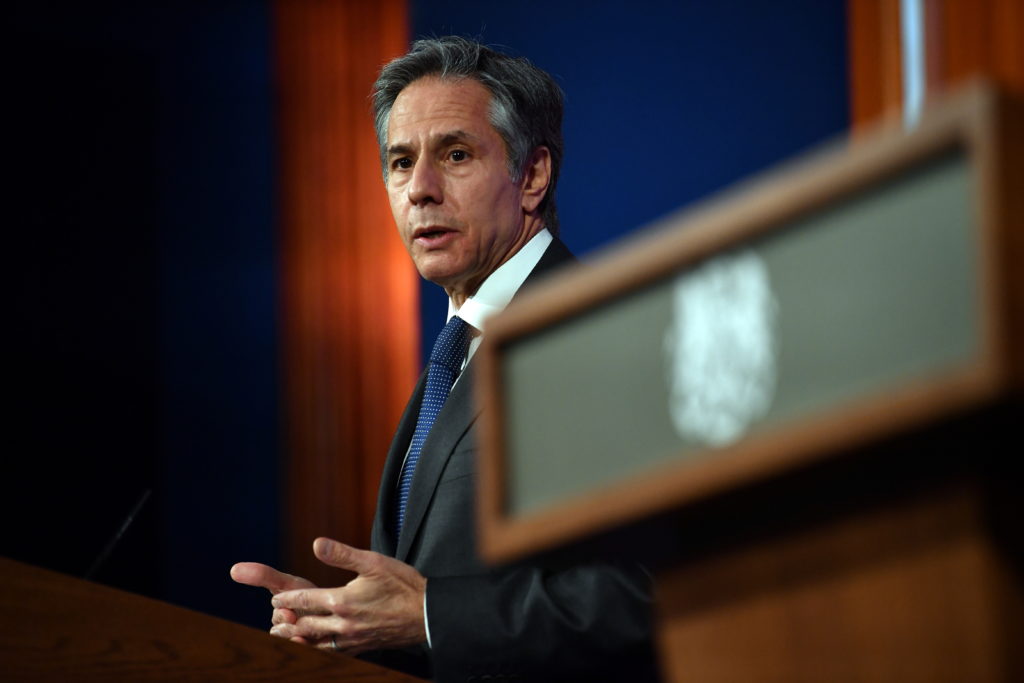Top US, Russian diplomats to meet during Arctic Council ministerial
U.S. secretary of state Antony Blinken and Russian foreign minister Sergey Lavrov will meet on the sidelines of the biennial Arctic Council gathering.

Top U.S. and Russian diplomats plan to meet in Iceland next week on the sidelines of the biennial Arctic Council ministerial meeting, amid mounting concerns over climate change and geopolitics in the North.
U.S. Secretary of State Antony Blinken and Russian Foreign Minister Sergey Lavrov held a call on Wednesday and made plans to meet on May 20 during the meeting in Reykjavik.
It’s the first time a Biden cabinet member will meet in person with a Russian counterpart.
During Wednesday’s call, Blinken and Lavrov discussed “Washington’s proposal to organize a Russian-American summit,” according to a translated statement from the Russian Foreign ministry. In April, U.S. President Joe Biden had proposed a summit, potentially next month, with Russian President Vladimir Putin.
On the Wednesday call, Blinken and Lavrov discussed “the potential to cooperate during Russia’s subsequent Arctic Council Chairmanship,” a spokesperson for the State Department said. State department spokespeople did not provide any additional details to ArcticToday on which Arctic issues might be discussed during this meeting or future summits.
[Iceland to cap off challenging Arctic Council chairmanship at Reykjavik ministerial]
Lavrov will lead the Russian delegation as Russia assumes the council’s two-year rotating chair. During the meetings, Russia expects a focus on “strengthening of cooperation and the coordination of efforts for the region’s stable development,” the country’s ministry of foreign affairs said in a tweet on Thursday.
Blinken confirmed he would attend the ministerial meeting during a speech on April 19. Addressing climate change will be the primary focus, Blinken said, in a sharp detour from his predecessor’s stance during the 2019 ministerial.
“I’ll reaffirm America’s commitment to meeting our climate goals and encourage other Arctic nations to do the same,” Blinken said.
However, it’s not clear how much of Russia’s chairmanship will focus on climate change. Russia plans to focus on economic development, rather than environmental issues, during its tenure. Although Russia didn’t oppose the mention of climate change in previous Arctic Council declarations, as the U.S. did, it has major fossil fuel resources in production and development in the Arctic.
“Russia’s chairmanship is not going to be climate-friendly,” Julie Gourley, the former senior Arctic official at the State Department, recently told ArcticToday. “So the U.S. is going to have to work extra hard with the Nordics and Canada.”
There are also complicated internal politics within the state department, Gourley said. “We just need to make sure that the anti-Russia viewpoint within the State Department in the European affairs bureau doesn’t take hold and wreck the whole two-year chairmanship by Russia, and turn it into a fierce, combative tone.”
Blinken mentioned in his April speech the shifting tenor of geopolitics in the changing North.
“Climate change can also create new theaters of conflict,” he said, highlighting the first-ever winter voyage of a Russian gas tanker through the Northern Sea Route in February. “Until recently, that route was only passable a few weeks each year,” Blinken said.
Russia is “exploiting” environmental changes like these “to try to exert control over new spaces,” he added. “It is modernizing its bases in the Arctic and building new ones, including one just 300 miles from Alaska.” China is also increasing its presence in the Arctic, he said.
During the call on Wednesday, Blinken told Lavrov that the U.S. would “act firmly in defense of U.S. interests in response to actions by Russia that harm us or our allies,” the State spokesperson said.
The Reykjavik meeting marks the culmination of a challenging two-year chairmanship for Iceland, which took over amidst the bombastic statements made by Mike Pompeo, then-U.S. secretary of state, in May 2019. This meeting, however, is not expected to be as divisive.

